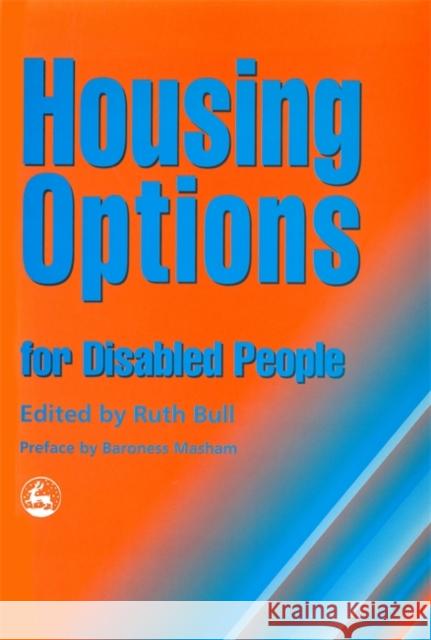Housing for People with Disabilities » książka
Housing for People with Disabilities
ISBN-13: 9781853024542 / Angielski / Miękka / 1998 / 288 str.
'The book contains a range of important messages in highlighting some of the complexities involved in the adaptation of housing for disabled people. The book is also progressive in calling for user-centred approaches in the development and delivery of social and welfare services. The book will be best used as a source of information (by professionals) and will be of particular use on training courses for occupational therapists in raising their awareness of methods and mechanisms of assessing the housing needs of disabled people. The structure of each chapter will, in part, help to do this given that they provide useful bibliographies and information about follow-up contacts and addresses, and a wealth of information about relevant statutes, legislation, practices and organisations.' - Disability & Society 'The book is full of examples, which bring life and clarity to the subject matter and help relate theory to practice. It also provides intersting snapshots of innovative practice going on across the UK, which are both reassuring professionally and a good source of ideas for those involved in service development. It draws together much disparate information which any therapist working in this field needs to have at his or her fingertips. It is good to see a book on housing that looks beyond door widths and ramp gradients to issues that are much more fundamental to providing a well-informed and proactive service.' - British Journal of Occupational Therapy When a person with a disability seeks to live at home in the community but is blocked by the limitations of the building, adaptations or rehousing can provide an enhanced quality of life. This book describes the processes involved in rehousing or adapting existing accomodation, identifying the professionals who may contribute and highlighting the role of the occupational therapist. It focuses on: - innovative ways of working out solutions to problems - user-centred services - how users can be informed and empowered - multi-disciplinary co-operation to overcome problems - principles of good practice in adapting existing property - effective planning of a new housing project, from choosing the site to completion - improving housing stock through government legislation and local planning department practices - the key role of occupational therapists in successful community care. The book will be of interest and practical use not only to occupational therapists but also to a range of other professionals, including access and planning officers, architects, environmental health officers and social workers.











